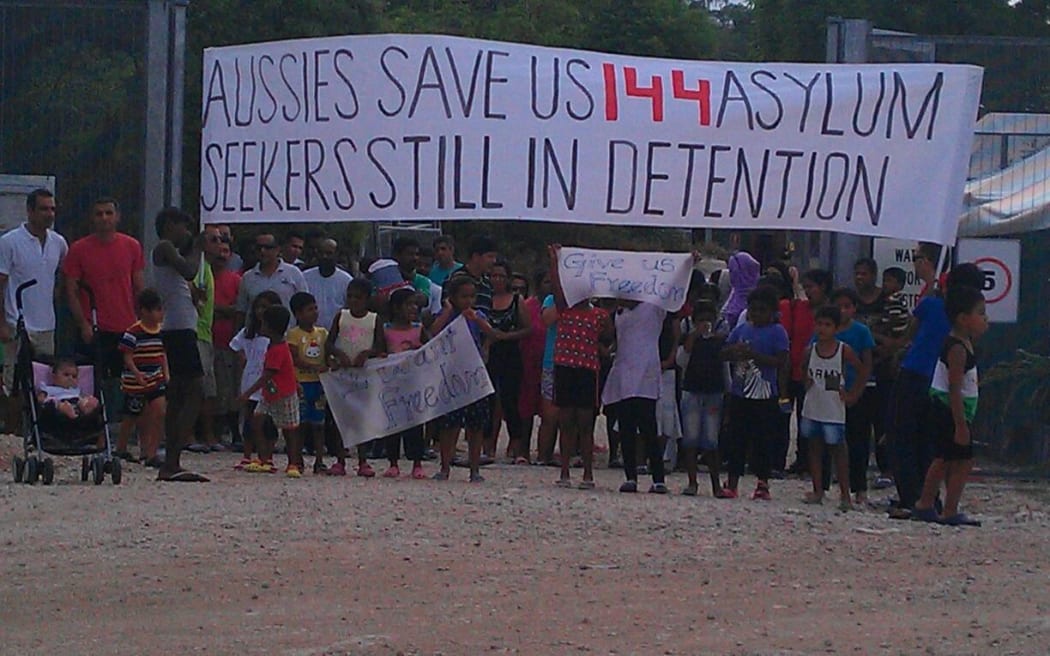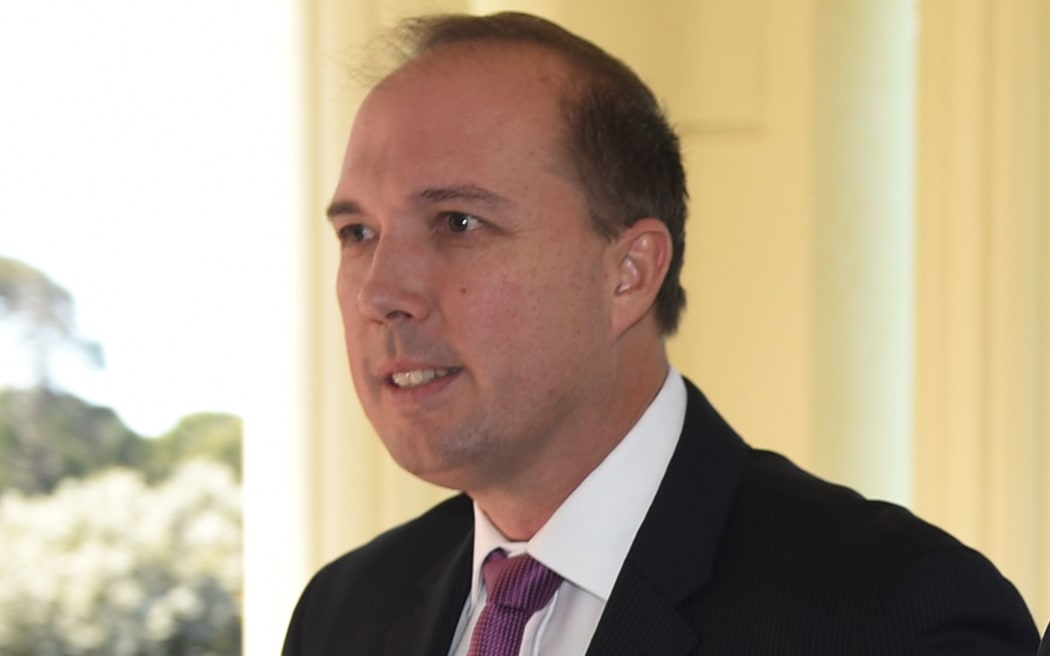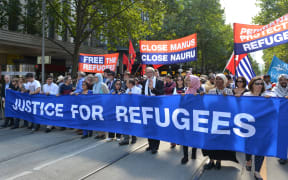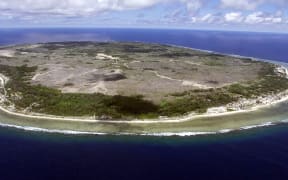A former president of Nauru says his country has the capacity to house the 850 asylum seekers in limbo on Papua New Guinea's Manus Island.
Papua New Guinea Prime Minister Peter O'Neill on Wednesday announced the detention centre on Manus Island would close after the Supreme Court found that holding Australia's asylum seekers was unconstitutional.
Sprent Dabwido, who signed the agreement to reopen the centre on Nauru in 2012, says the detention centre there has the capacity to hold the asylum seekers.
"The actual capacity of Nauru is to fit comfortably 1,500 people. Right now I think we have only about 300 people on the island. But yeah, if you bring in the 850-900 we should still be able to hold them comfortably."

Protesters gather outside the family compound of the asylum seeker detention centre on Nauru. Photo: Supplied
The detention centre on Nauru has been plagued with allegations of abuse and regular protests, with six asylum seekers attempting to commit suicide this week.
Papua New Guinea is ultimately responsible for the 850 asylum seekers on Manus Island says the Australian government.
Australia has ruled out transporting the group to its Christmas Island facilities.
The Australian Immigration Minister Peter Dutton told the ABC that asylum seekers on the island were ultimately the responsibility of Papua New Guinea under the Memorandum of Understanding.
However, the PNG High Commissioner to Australia Charles Lepani said the asylum seekers are Australia's responsibility.

Australian Immigration Minister Peter Dutton Photo: AFP
An Australian refugee lawyer said Australia's hardline policy of detaining asylum seekers offshore is unravelling.
The executive director of the Refugee and Immigration Legal Centre, David Manne, said the approach of not accepting any asylum seeker who arrives by boat is showing itself to be unsustainable.
"At the moment what we see with the policies of offshore processing in Nauru and Papua New Guinea, are policies that are chaotic, that are unravelling, and are causing tremedous human suffering."
"They are unsustainable in either legal, moral, financial or practical terms and must be brought to an end at some point. It can't go on like this," he said.




